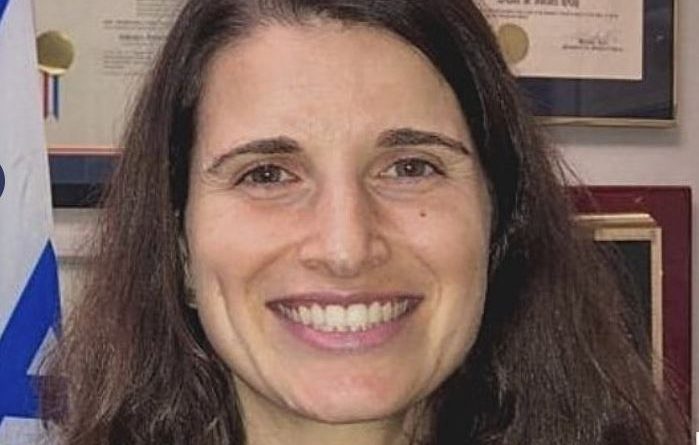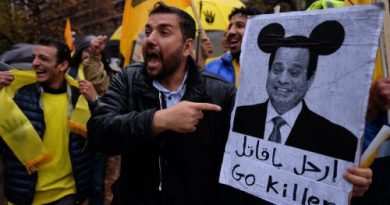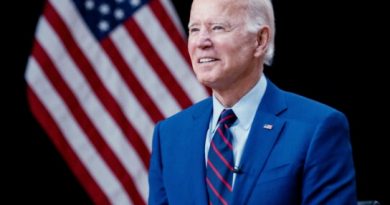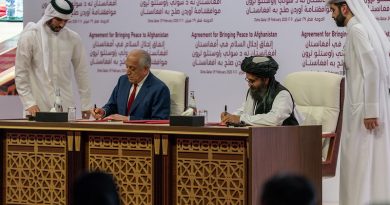Israeli Consul Speaks About Abraham Accords and its Implications at the School of Diplomacy
Jasmine DeLeon
Staff Writer
“It is really changing Israel and the Middle East,” said Israeli Consul for Public Diplomacy Adva Vilchinski, who spoke at the School of Diplomacy about the significance of the Abraham Accord and its implications on March 25.
The Abraham Accord, which was brokered by the United States and signed in September 2020, established open diplomatic relations between Israel and the United Arab Emirates (UAE). Vilchinski repeated both praise and excitement about the Abraham Accords during her presentation.
“It is a new Middle East,” she stated. “It is something that started, and is not ending yet. It is still rolling, and the ripples, circles, and fruits of peace are only at its beginning. [This] is beneficial not only for Israel but for the region as a whole.” Vilchinski added that the Abraham Accord is something that benefits moderate people who want to live in peace and prosperity.
One component of the Abraham Accord that Vilchinski highlighted is the fast nature of its growth, as there have already been nine memorandums of understanding (MoUs) signed between the Israeli and UAE governments. She explained that the MoUs were signed on many different topics, such as industry, agriculture, technology, and tourism. Additionally, Vilchinski highlighted how Israel and the UAE have an agreement to partner for civic and space programs.
Vilchinski further talked about how there are usually around 20 MoU in the process of signing an agreement between two nations. She cited her experience doing MoUs when she worked as a political adviser at the Israeli Embassy in New Delhi to explain that MoUs take a lot of time. “The fact that it’s growing so fast with two countries that never had any form of cooperation before, means so much, and shows how much people care,” she stated.
There is also a vital need to understand the history. “This peace did not start in September [nor] in a day. It started a long time ago with people who tried to speak with each other, not governments specifically,” she added. One example of why this deal is important for Israel, Vilchinski said, is that businessmen and women are now able to trade openly where they previously did it in secrecy.
Trade and economics are two areas heavily impacted for both states due to recent diplomatic efforts. “Before, if you were selling aluminum to Israel, you could not label it as ‘made in Israel’ and you had to do it under the table. Now we can label it and be proud of working together and doing it without any secrets,” Vilchinski explained.
Another area undergoing changes because of closer diplomatic ties between Israel and the UAE is cooperation with policing, according to Vilchinski. There is a partnership between the Israelis and UAE police, who are now working together. This is also the same for health, which goes beyond health ministry offices to include semi-private and private hospitals in Israel, who are opening dialogues with UAE hospitals, she explained.
Vilchinski showed several videos throughout the event. One video pertained to what she said Israel looked like on the day of the Abraham Accords, which showed how the flags of the United States, Israel, and the UAE were projected on the walls of Jerusalem. Vilchinski noted how the United States is “the closest ally of Israel in the world.”
When asked about Israel’s thoughts on the new Biden Administration, she stated: “The state of Israel is thankful [to] both the Trump Administration that had this agenda, but also to the Biden Administration that already had few comments and statements that they would continue to maintain and promote this peace.”
Vilchinski added that “the most concerning affairs of the U.S. is domestic affairs, the pandemic, and taking care of the American people,” and that Israel has historically had good cooperation with the United States, regardless of the party.
A subject that came up several times during the event is how Palestine fits into the Israeli narrative. In her presentation, Vilchinski said that conversations were still ongoing and “we invite everyone who wants to be part of this peace to be part of these conversations,” which she added, does not exclude Palestinians. “The Palestinians were also invited by the UAE to join this peace, so we’re still waiting and will make efforts to make it happen.”
When asked about what she thought the best next step toward gaining peace is, especially in regard to the Palestinians, Vilchinski responded that she does not think there is a recipe for peace. “It is a long process. I am sure you know that the feeling of peace will slowly emerge for people who do not have peace with us,” she concluded.




